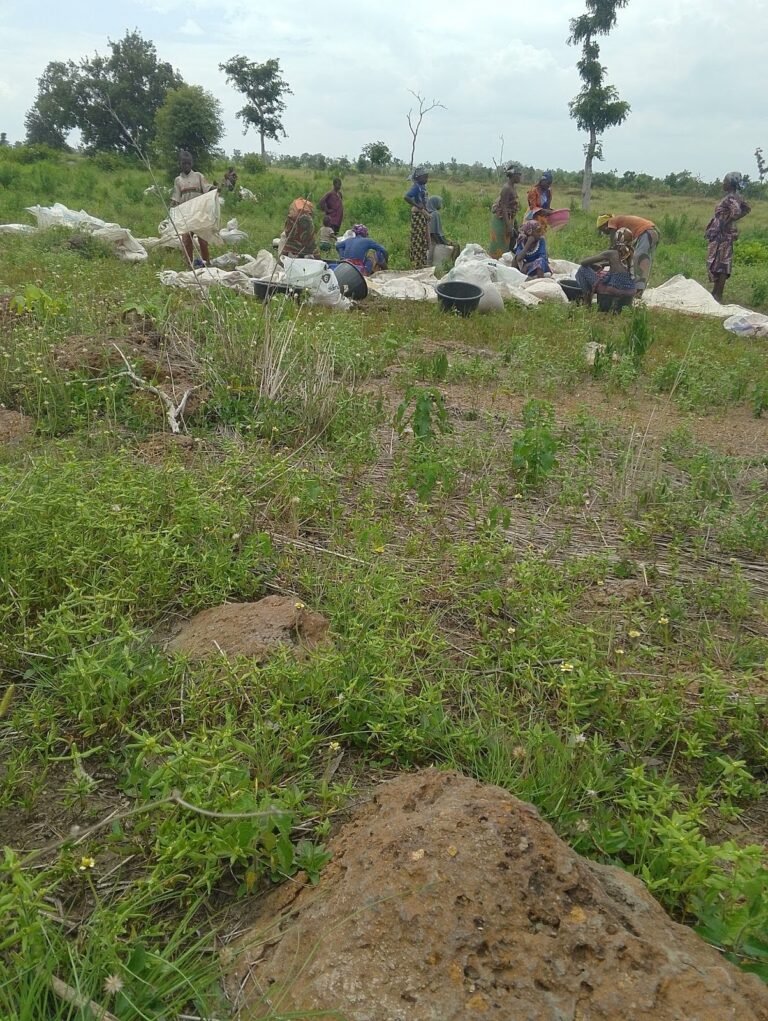Claim: Armed Fulani militants are burning down already deserted villages in the Mbagwen area of Guma, a local government area in Benue, north-central Nigeria.
Verdict: False! The image in the post was traced to a report about the May 20, 2000, Bagher massacre. There is also no recent news report of an attack in Guma, Benue State.
Full Text
On May 26, 2025, a Facebook user, Tivta Samuel Aodohemba, shared a post (archived here) on the public Facebook group Alia Tv, claiming that armed Fulani militants had attacked several communities in the Guma Local Government Area of Benue State that night.
The post mentions the Mbagwen axis, Mbayer/Yandev Council Ward, and Tse Ikpe Ago. It is accompanied by an image allegedly showing a community set on fire.
He wrote: “What is most disturbing is that all the affected villages are located close to military camps. For instance, Tse Ikpe is just a stone’s throw from the army camp stationed at Tse Hagher, while Ambassador Nago’s compound is directly opposite an army camp in Yogbo. Shockingly, despite the proximity, the soldiers did nothing to intervene or even fire warning shots to disperse the attæckers.”
The post called on the state governor, Hyacinth Alia, and other relevant authorities to act quickly to prevent the looming danger of genocide in Benue State.
As of 30 May, the post had attracted 24 reactions, 44 comments, and nine shares.
A review of the comment section indicated that many users believed the claim. For instance, Terdue Frank Kwaghngu commented, “If quick action isn’t taken, even Makurdi and other parts of Benue will be on fire soon.”
Another user, Asema Monday, wrote, “They should call all the army back to the barracks. Let’s use our traditional way.”
Blessing Aka, stating that the leaders are not helpful, wrote, “Inviting our leaders seems not to be working, why don’t we cry to God for mercy?”
The claim that Guma is under attack has circulated widely on social media. This spread can fuel anxiety over local security and raise doubts about the reliability of government responses. Given its potential to spread fear and undermine public trust, we conducted an open-source investigation to check whether the claim is true or false.
Verification
We conducted an advanced Google search using the keyword “Guma on fire” and found 38 posts reporting attacks on Facebook in Guma between May 25 and May 29, 2025.
In one instance, the claim, as it appeared in a post here (archived here), was shared with a group of over 19,800 members on Facebook, with five comments. One commenter lamented the lack of trust in the Nigerian Army. He says, “We no longer trust the Nigerian Army again. Corruption has taken over this security agent. Only God can help us.”
Also, in another post, the claim, as shared here (archived here), has generated 11 impressions, five comments, and three shares.
We also conducted a Google reverse image search on the picture attached to the post, which revealed that the image was misused and taken out of context.
The search led to reports published (archived here) by India Today NE, an Indian media outlet, and MSN (archived here) on May 20, 2025. The report, published about a week before the Facebook post, was in remembrance of the May 20, 2000, Bagher massacre. This suggests that the image is unrelated to the alleged incident in Benue State.
Moreover, while reputable Nigerian media platforms have reported herder attacks in various parts of Benue, no credible outlet reported such an attack occurring on Monday, May 26, 2025.
An examination of Tivta Samuel Aodohemba’s Facebook activity (archived here) reveals a repeated pattern of disinformation and incitement, often framed around ethnic hostility, alleged Fulani militant violence, and military inaction. This behaviour aligns with tactics commonly used to inflame fear, deepen mistrust, and spread misinformation in conflict-prone environments.
Using advanced Google search tools, we found that between May 1 and May 30, 2025, Tivta Samuel Aodohemba posted, reposted, featured in, or reacted to at least 206 posts related to alleged Fulani attacks, including the now-debunked claim of violence in Guma.
Aodohemba’s posts also include elements of political propaganda. Many appear to undermine and spread hatred against the current governor of Benue State while praising the former administration (archived here).
Conclusion
The image used in the Facebook post is unrelated to the claim, and no news report from any credible media confirms the alleged attack. Therefore, the claim is false.















